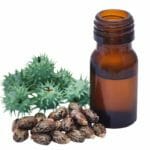What is Niacinamide: Benefits and Side Effects
At BeautyCaters, our expert team independently curates every recommended product. Purchases through our links may earn us a commission. Explore our transparent selection process.
Niacinamide is a widely used ingredient in the formulas of the skincare products we can find on our shelves. We usually find it as a protagonist in niacinamide serums and moisturizers.
When we use this vitamin topically we can experience an improvement in the overall appearance of the skin, a brighter glow and a more even tone.
We’re going to explain what is niacinamide, what its benefits are for the skin, what actives you can combine it with and how to find a product containing this ingredient. Let’s get started!
Table of Contents
What is niacinamide?
Niacinamide, also known as nicotinamide, is a form of vitamin B3 essential to the human body. We obtain it through the consumption of green leafy vegetables, legumes, milk, fish or eggs.
When we apply nicotinamide to the skin we obtain numerous benefits, which is why it is a widely used ingredient in the formulas of many moisturizers and serums. It has antioxidant properties, blocks pigment production and helps control sebum production and redness, among others.

Benefits of niacinamide for the skin
The main benefits of niacinamide, when applied to the skin, have been shown to be the following:
- Improves skin barrier function: Niacinamide helps the skin to create a lipid barrier [1], which helps to prevent transepidermal water loss. It improves skin hydration.
- Stimulates keratin production: keratin is a protein present in the skin that helps maintain its structure and firmness. When we apply this active ingredient to the skin, small breaks or cracks are repaired more quickly thanks to its ability to improve the production of this protein [2].
- Reduces redness: thanks to its anti-inflammatory properties, this form of vitamin B3 is able to reduce redness when applied to the skin [3]. This is really useful for skin with acne, eczema or rosacea.
- Lightens blemishes: this vitamin has a very interesting property for skin with hyperpigmentation, as it slows down the transfer of pigment between skin cells.
- Regulates sebaceous secretions and minimizes the size of your pores: nicotinamide manages to regulate the amount of sebum your skin produces, which is good for oily or acne-prone skin [4]. In the medium term, it reduces pore size and fights blackheads.
- It can repair sun damage: this vitamin is able to repair damaged DNA in affected cells due to inadequate sun exposure.
- Protects against oxidative stress: thanks to its antioxidant properties, niacinamide helps to fight free radicals generated by exposure to pollutants or solar radiation.

Differences between niacin and niacinamide
Although they may resemble each other in name, niacinamide and niacin are not the same. Both are derivatives of vitamin B3, but niacin or nicotinic acid is the acid form of this nutrient. When niacin is applied to the skin, irritation or redness is more likely to occur.
There are several skin care products on the market that include the acid form of vitamin B3, especially the cheaper ones, but it is preferable to look at the ingredient list and make sure your product contains high-quality niacinamide (listed as niacinamide in the INCI).
Can it be mixed with other actives?
While sometimes we do need to be careful about which actives we mix into our skincare routines, niacinamide is not an ingredient to be concerned about.
In fact, niacinamide is a very stable active that enhances the function of other ingredients when used together. For example, it can decrease the irritation experienced by the skin when used with an exfoliating acid, or improve skin hydration in conjunction with hyaluronic acid.
What to look for in a product with niacinamide
When shopping for a product with niacinamide, consider the following:
- The percentage: the ideal percentage of niacinamide in a skincare product is between 2% and 5%. A higher amount can cause skin irritation and redness. If we have sensitive skin, we should avoid products with a high percentage of this active ingredient and opt for formulas with less than 2%.
- Avoid redundancy: this happens with all famous active ingredients. When an ingredient becomes fashionable, it appears prominently on the packaging of the product in question. Well, keep in mind that there are many moisturizers and serums that incorporate niacinamide. Therefore, you don’t need a niacinamide serum if your facial moisturizer already includes it in its formula. If your skin is sensitive, you will be applying a percentage of this active ingredient much higher than your skin can tolerate.
- Works best in combination with other antioxidants: some studies show that the efficacy of vitamin C is greater when combined with other antioxidants [5], such as niacinamide. Together they work through different mechanisms to fight free radicals.

How to use niacinamide in your facial routine
The best way to use niacinamide in a facial routine is to introduce it in the morning, along with the rest of the antioxidants.
If you are going to use a serum with this active ingredient as the main ingredient, apply it after washing your face and just before your moisturizer. Then you can apply your sunscreen on top.
Side effects of niacinamide
Niacinamide applied topically does not usually cause reactions, although it can cause irritation or redness on very sensitive skin. To avoid this, make sure you use products containing no more than 1% or 2% nicotinamide.
You can still test the product on a small, controlled area of your skin, such as your wrist. Monitor for an allergic reaction after 24 hours.
Can you use vitamin C and niacinamide together?
Frequently asked questions: What is niacinamide and benefits
Here are some frequently asked questions you may have about niacinamide:
Can niacinamide and vitamin C be used at the same time?
Yes, vitamin C and niacinamide can be used together. In fact, their functions complement each other and provide even greater benefits when used together, as vitamin C inhibits pigment production and niacinamide blocks pigment transfer between skin cells.
What skin types can use niacinamide?
All skin types will experience benefits if they include topical niacinamide in their routine due to its barrier-enhancing properties.
Can niacinamide be used every day?
Yes, niacinamide can be used on the face every day. In fact, it can be used morning and night. Reduce the frequency of application if you experience redness or discomfort.
Does niacinamide remove skin blemishes?
Yes, one of the benefits of niacinamide for the skin is its inhibiting action on pigment transfer between skin cells. Therefore, if you use a product containing this active ingredient for long enough, you will experience an improvement in the appearance of your blemishes.
Sources:
- 1. O Tanno, Y Ota, N Kitamura, T Katsube, S Inoue, Nicotinamide increases biosynthesis of ceramides as well as other stratum corneum lipids to improve the epidermal permeability barrier, British Journal of Dermatology https://pubmed.ncbi.nlm.nih.gov/28220628/
- 2. Gehring W. (2004). Nicotinic acid/niacinamide and the skin.
- ncbi.nlm.nih.gov/pubmed/17147561
- 3. Levin J, Momin SB. How Much Do We Really Know About Our Favorite Cosmeceutical Ingredients? J Clin Aesthet Dermatol. 2010;3(2):22-41. https://www.ncbi.nlm.nih.gov/pmc/articles/PMC2921764/
- 4. Walocko FM, Eber AE, Keri JE, Al-Harbi MA, Nouri K. The role of nicotinamide in acne treatment. Dermatol Ther. 2017 Sep;30(5). doi: 10.1111/dth.12481. Epub 2017 Feb 21. PMID: 28220628. https://pubmed.ncbi.nlm.nih.gov/28220628/
- 5. Murray J.C, Burch J.A, Streilein R.D., Iannacchione M.A, Hall R.P, Pinnell S.R. A topical antioxidant solution containing vitamins C and E stabilized by ferulic acid provides protection for human skin against damage caused by ultraviolet irradiation. https://pubmed.ncbi.nlm.nih.gov/18603326/










